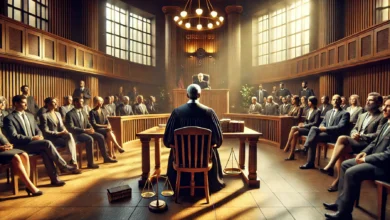Long Term or Just for Now Understanding Custody, Guardianship, and Adoption for Grandparents in Alabama

When life takes a turn and grandparents step in, the next big question becomes: How do we protect this arrangement legally?
Sometimes, it’s clear that a child needs long-term stability. Other times, the situation is temporary — maybe a parent is recovering from addiction, facing medical issues, or rebuilding after a crisis. In some cases, the parents themselves want to give the grandparents legal authority to step in, but not forever.
The good news? Alabama law offers multiple legal paths to make your role official, each with its own purpose, responsibilities, and impact on the family.
Let’s walk through the differences between custody, guardianship, and adoption, including how they work, how they’re similar, and how to choose the option that best fits your family’s needs.
🏠 Custody: Taking Legal Responsibility Without Ending Parental Rights
Legal custody means the court gives you the right to make decisions for the child, where they live, go to school, receive medical care, and more. As a grandparent, you can petition for temporary or permanent custody if the parents are unable to provide a safe, stable environment.
Key Features of Custody:
- You become the primary decision-maker for the child
- The parents’ rights are not terminated, but may be limited
- The parent can request visitation or attempt to regain custody later
- The court can revisit custody orders if circumstances change
Custody is often the best option when:
-
- A parent is going through a rough patch (jail, addiction, housing crisis)
- The child is in danger and needs immediate protection
- You want to act fast, but not cut off the parent forever
Custody gives structure to chaos, allowing you to parent with legal authority while leaving the door open for the parent to return, if and when they’re truly ready.
🧾 Guardianship: A Cooperative Option With or Without Court Intervention
Guardianship gives a grandparent temporary legal control, but often with less permanence and more flexibility than full custody. It can be court-appointed, but sometimes it’s agreed to voluntarily by the parents without a court fight. This is particularly helpful for parents seeking a military divorce.
Key Features of Guardianship:
-
- You make everyday decisions for the child (school, healthcare, routine care)
- Parental rights remain intact and visible
- Often used when a parent consents or is temporarily unavailable
- May require less courtroom conflict, especially if both sides agree
Guardianship is often used when:
- A parent is deployed, hospitalized, or entering rehab
- There’s mutual agreement that grandparents should step in
- The goal is to keep the family intact without going through a full custody trial
This is a great fit for families working together. If the parent trusts you and wants you to step in during a crisis, guardianship offers the legal structure without declaring the parent “unfit.”
📜 Adoption: Permanent, Total Parental Responsibility
Adoption is the most permanent legal option. If you adopt your grandchild, the biological parents’ legal rights are terminated. You become the child’s legal parent — full stop.
Key Features of Adoption:
- The child becomes legally yours in every way
- Parental rights are completely and permanently ended
- You receive full decision-making authority, just like with a biological child
- The child may receive inheritance rights and insurance benefits
Adoption may be appropriate when:
- The parents are deceased, incarcerated long-term, or permanently unfit
- The child has already been with you for a long time, with no contact from parents
- Everyone agrees that stability, not reunion, is the priority
While it’s a powerful form of protection, adoption is not always necessary or appropriate, especially when there’s still hope that the parents may one day return to a safe and responsible role.
🤔 So Which One Is Right for You?
Here’s a quick side-by-side to help guide your thinking:
| Legal Option | Terminates Parent’s Rights? | Can it Be Temporary? | Who Makes Decisions? | Best Used When… |
| Custody | No | Yes or No | Grandparent | Child needs protection, but family ties remain |
| Guardianship | No | Yes | Grandparent | Parents agree or are temporarily unavailable |
| Adoption | Yes | No | Grandparent (as parent) | Parent is permanently out of the picture |
A law firm like the Harris Firm can help you understand the emotional and legal implications of each option, and walk you through whichever path is best for your family.
💬 Final Thoughts: Legal Protection That Matches Your Family’s Reality
Not every situation needs to be permanent. Not every family needs a battle. Sometimes, what’s needed most is legal clarity; a structure that allows you to care for the child fully, while still honoring the complexity of the family behind them.
Whether you’re stepping in for a few months or taking over for good, the law gives you options, and those options give the child what they need most: peace, routine, and a sense of home. You’re not just holding things together. You’re making it official. And whether that means custody, guardianship, or adoption, there’s a legal path forward that protects the child while respecting your unique family story.

